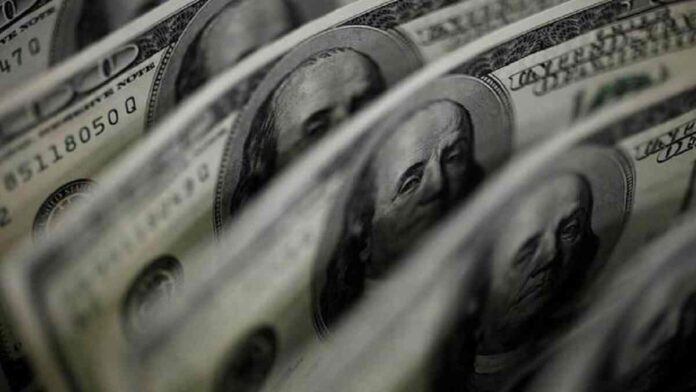Naira Faces Devaluation Option as Exchange Rates Worsen
Nigerian naira has lost its cool, and it is affecting households, and companies while wealth managers are seeing investing in assets denominated in the local currency as risky to portfolio building.
It has been a stormy outing for the foreign exchange (FX) markets as the Nigerian local currency, the naira, continues to lose value due to the scarcity of hard currencies inflows into the economy.
FX markets face with myriads of uncertainties centred on the scarcity of foreign currencies; with naira trading in the midst of the storm – moving from N415 to N425 in six months, according to data from the FMDQ Exchange.
The worsening exchange rate signposts that the Central Bank of Nigeria (CBN) could devalue the naira in 2022 amidst an expectation that pre-election demand for foreign currencies would worsen rates further.
Devaluation, though undesirable in an economy with low exportable produce, and high poverty level but the FX markets becoming tight as foreign investors stay away from the Nigerian economy.
MSCI Index in the latest release signal that Nigerian indexes could face a downgrade after a consultation launched last week, citing an inability to get the dollar out of the country following tightening on foreign currencies repatriation.
Far from heading toward the Zimbabwe currency crisis but all policy efforts to keep the naira strong have failed as the apex bank appears to have lost control of managing the local currency.
In the just concluded week, the exchange rate worsened across the market and analysts think there is no respite for the local currency due to scarce foreign currencies inflows. READ: Naira Rises as Analysts Anticipate Devaluation at Investors Window
Unequivocally, the Nigerian monetary policy authority continues to maintain a stance not to devalue the naira despite the fact that leadership acceded to the fact that the local currency is overvalued.
In the Investors and Exporters foreign exchange window, Naira tracks lower in the just concluded week to N425 to a United States dollar. Meanwhile, Nigeria’s external reserve maintained its accretion for the fifth consecutive week, as the gross reserve position inched up by US$230.14 million to US$39.16 billion on June 30.
Across the FX windows, the naira weakened against the U.S dollar by 1.1% week on week to N425.00, a level that signals that the local currency could be facing additional pressures than the market had anticipated.
At the parallel market, the exchange rate worsens to N615-616 but Bureau de Change (BDCs) operators have other rate determinants request including demand or supply volume to determine rates. Foreign currencies with a lower denomination attract lesser rates irrespective of volume, according to MarketForces Africa channel checks.
With a barrage of unorthodox approaches to make the naira holds strong against other foreign currencies, the Central Bank of Nigeria (CBN) has used various stylish sub-devaluation measures like naira4dollar, and N65 rebates to low demand pressures in the FX markets.
However, the market has been repricing the local currency in the official window, losing strongly against all foreign currencies pair, especially, the United States dollar, according to currencies data tracked by MarketForces Africa.
Would the naira survive the next onslaught against major currencies in the markets? A slew of analysts and currencies traders told MarketForces that this is unlikely as they are already expecting the CBN to devalue the naira.
For the domestic economy, devaluation of the local currency would have a double-edged sword on market performance. But Nigerian citizens will be faced with additional market-absorbed pressures in the form of higher prices.
At the core of monetary policy objectives remain price and currency stability but CBN has lost at both ends. Nigeria is battling with red hot headline inflation that printed at 17.71% in May, with a possible increase in the third quarter of the year, according to analysts’ projections.
Unfortunately, the Broadstreet experts are talking less about stagflation risk but the Nigerian economy is heading in that direction with an unsavoury unemployment rate amidst a slowdown in private sector activities.
With the tough macroeconomic condition that Federal Government has persistently assuaged with conditional economic transfers to poor citizens, devaluation would rather be a curse on household spending but a blessing to a larger market.
CBN devaluation of the local currency will attract foreign investors into the economy, often through foreign portfolio investment channels. As a result, a lower impact is expected on citizens in the short term. Naira stability provides a positive investment landscape for investors, according to analysts that spoke with MarketForces Africa.
This, in addition to monetary policy tightening, could drive strong foreign investors’ participation in the Nigerian economy. However, the risk lies in an ongoing interest rate hike in the United States.
What should Emefiele do to Naira? Experts’ positions remain that Nigeria must generate foreign currency inflows to support local demand for the dollar. Or, redenomination of the Naira would be required to drive stable exchange rates.
In the short term, increasing export earnings has proven to be a herculean task for the Nigerian government and the CBN remains unfazed by market demand to devalue the naira. The last option which some analysts think is not feasible is to cut imports drastically. # Naira Faces Devaluation Option as Exchange Rates Worsen












